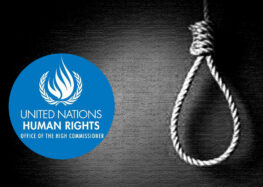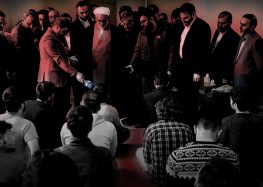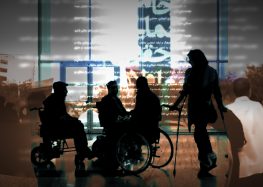Iran’s Categorization of Autism As a “Special Disease” Is a Double-Edged Sword for Persons With Disabilities

The Iranian Parliament’s recognition of autism as a “special disease” will have positive and negative consequences for persons living with the disability in Iran according to an Iranian disability rights advocate.
“Of course the steps taken by Parliament should be applauded as they do help cover some of the expenses previously incurred by families,” the source, who spoke on the condition of anonymity for their personal security, told the Center for Human Rights in Iran (CHRI).
“But the issue is that an autistic child needs a team of helpers including a psychiatrist, speech therapist, occupational therapist and doctor who have to work side by side,” said the source.
“The budget allocation is only for medical and pharmaceutical needs for special diseases,” added the source. “Therefore, this is ultimately a costly label (for people with autism).”
The new designation was incorporated into the country’s March 2018-19 budget a few weeks before World Autism Day on April 2. It will allow people with autism to benefit from state assistance including subsidized drug prices allocated for people with “special illnesses,” which include medical conditions such as AIDS and hemophilia.
However, it fails to categorize autistic people as “persons with disabilities”—the correct designation for autism according to the United Nations Convention on the Rights of People With Disabilities (CRPD).
“The reality is that autism is related to developmental complications that weaken relationship and communications skills,” the disability rights activist told CHRI.
“The ‘special disease’ designation will further isolate and segregate those with autism, which directly opposes the purpose of the CRPD,” added the source.
“Based on the convention [CRPD], the government should strive to change misconceptions of people with disabilities and normalize their lives instead of making matters worse by identifying them as special or abnormal,” said the source.
The categorization of autism as a “special disease” also has limited practical benefits because it only makes autistic people eligible for medical and pharmaceutical costs.
But a child living with autism also requires regular and sometimes daily behavioral, occupational and speech therapies that on average cost about $800 per month according to Ahmad Zad Aslan, an advisor to Iranian Health Minister Hassan Ghazizadeh Hashemi.
None of these treatments are covered by state medical insurance. If the budget is implemented as is, families with autistic individuals will be able obtain medications that they previously had to pay full price for at a subsidized rate.
Providing affordable medical and pharmaceutical services to people with autism is a positive step but it violates the CRPD, which Iran ratified in 2009.
According to the convention, “Persons with disabilities include those who have long-term physical, mental, intellectual or sensory impairments which in interaction with various barriers may hinder their full and effective participation in society on an equal basis with others.”
Disabilities, which include autism, are not defined as a disease.
“A disability is part of a person’s identity and society and the state has a duty to minimize the effects of disabilities on a person’s independence and equality and create the conditions to attain their human rights by removing social and cultural barriers and provide necessary services, including medical services,” the disability rights activist told CHRI.
According to the most recent government figures (2014), one out of 150 children in Iran has autism.
As of 2017, 1 in 160 children had an autism spectrum disorder (ASD) according to the World Health Organization.
According to statements by the deputy director of the Iranian Welfare Organization, some 6,000 children have been identified as living with autism in Iran. Approximately 3,000 of them are covered by the organization’s rehabilitation centers.






